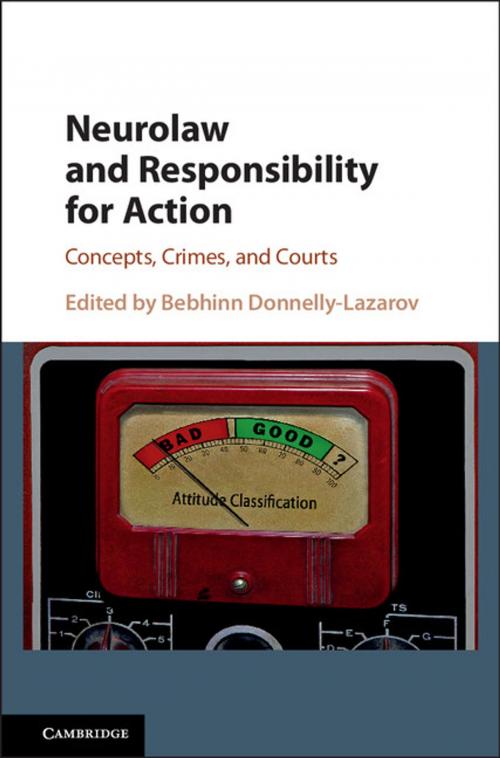Neurolaw and Responsibility for Action
Concepts, Crimes, and Courts
Nonfiction, Reference & Language, Law, Criminal law, Social & Cultural Studies, Social Science| Author: | ISBN: | 9781108635202 | |
| Publisher: | Cambridge University Press | Publication: | April 30, 2018 |
| Imprint: | Cambridge University Press | Language: | English |
| Author: | |
| ISBN: | 9781108635202 |
| Publisher: | Cambridge University Press |
| Publication: | April 30, 2018 |
| Imprint: | Cambridge University Press |
| Language: | English |
Law regulates human behaviour, a phenomenon about which neuroscience has much to say. Neuroscience can tell us whether a defendant suffers from a brain abnormality, or injury and it can correlate these neural deficits with criminal offending. Using fMRI and other technologies it might indicate whether a witness is telling lies or the truth. It can further propose neuro-interventions to 'change' the brains of offenders and so to reduce their propensity to offend. And, it can make suggestions about whether a defendant knows or merely suspects a prohibited state of affairs; so, drawing distinctions among the mental states that are central to legal responsibility. Each of these matters has philosophical import; is a neurological 'deficit' inculpatory or exculpatory; what is the proper role for law if the mind is no more than the brain; is lying really a brain state and can neuroscience really 'read' the brain? In this edited collection, leading contributors to the field provide new insights on these matters, bringing to light the great challenges that arise when disciplinary boundaries merge.
Law regulates human behaviour, a phenomenon about which neuroscience has much to say. Neuroscience can tell us whether a defendant suffers from a brain abnormality, or injury and it can correlate these neural deficits with criminal offending. Using fMRI and other technologies it might indicate whether a witness is telling lies or the truth. It can further propose neuro-interventions to 'change' the brains of offenders and so to reduce their propensity to offend. And, it can make suggestions about whether a defendant knows or merely suspects a prohibited state of affairs; so, drawing distinctions among the mental states that are central to legal responsibility. Each of these matters has philosophical import; is a neurological 'deficit' inculpatory or exculpatory; what is the proper role for law if the mind is no more than the brain; is lying really a brain state and can neuroscience really 'read' the brain? In this edited collection, leading contributors to the field provide new insights on these matters, bringing to light the great challenges that arise when disciplinary boundaries merge.















